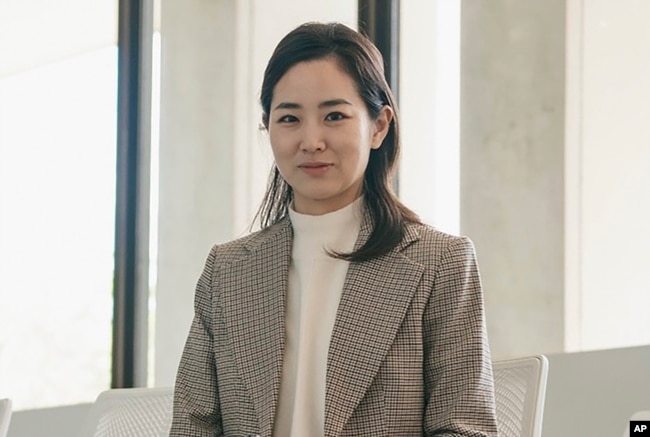AUDIO
Improve Your Mindset, Improve Your Health

Prince Bhojwani never thought of himself as a negative person. But three trips to the hospital in one month led him to reconsider his thoughts, or mindset, toward life.
Before May of 2018, he was healthy. He was living in New York City, working at a startup company he founded. He found time to ride his bicycle each day. Yet Bhojwani always felt worried. One day, his health began to suffer. He could barely walk. He could not see clearly. And his blood pressure suddenly increased greatly.
At a hospital emergency room, doctors suspected he had had a stroke. But they never could find the cause of his illness.
A close friend pointed out that Bhojwani had a negative mindset. He often lacked the belief that things would go well. The friend suggested that Bhojwani might be burned out. Bhojwani describes this friend as “one of the most optimistic people” he knows.
Bhojwani said that he “started looking at the world very differently…” as soon as recovered. He started deep, calm, purposeful breathing. He started taking time every morning to feel thankful to be alive. And he also found purpose in his life by co-founding a nonprofit, Asana Voices, a South Asian support organization.
In the years since, he has not had any similar health problems. He credits his new positive mindset.
“After there was a life-changing event,” he said, “it kind of forced me to become optimistic. I can’t even imagine living life the way I did back then.”
A longer, healthier life?
Numerous studies over the years have shown a link between a positive mindset and good health.
Experts say a standard for measuring someone’s optimism has long been the 10-question Life Orientation Test (Revised), published in 1994.
Questions from that test include:
In uncertain times, I usually expect the best.
It’s easy for me to relax.
I rarely count on good things happening to me.
Respondents answer using a scale of zero to four. Zero means you “strongly disagree” with the statement and 4 means you “strongly agree” with the statement.

“Optimism means the “expectation that good things will happen, or believing the future will be favorable because we can control important outcomes,” said Hayami Koga. She is a researcher at the Harvard Center for Population and Development Studies.
She was the lead writer on a 2022 study that found optimism was linked to longer lives and a greater chance of living past the age of 90.
In another study, published in May in JAMA Psychiatry, Koga and other researchers found that optimists generally stayed in better physical health as they aged. Over a six-year period, the researchers looked at 5,930 women who had all gone through menopause.
“We know that more optimistic people are more likely to live a healthier life, with healthier habits, eating healthier, having more exercise,” Koga said.
Can I learn to be an optimist?
Some people are born more optimistic. However, it can be learned, said Sue Varma. She is a professor of psychiatry at New York University. She also wrote the book “Practical Optimism: The Art, Science, and Practice of Exceptional Well-Being.”
Varma noted that her book builds upon the work of Martin Seligman, one of the founders of positive psychology.
Optimism training, Varma said, can improve life satisfaction and reduce worry. She told the Associated Press that some people are not naturally positive. They are more pessimistic. However, they can learn skills to help see the world more in a more positive way.
Varma said that even for people who do not naturally “see the glass half full, there are skills that you can learn.” Someone who “sees the glass half full” views a situation with hope or optimism. Someone who “sees the glass half empty” is more negative or pessimistic about a situation.
So, what skills should glass half-empty people learn to become more optimistic?
Begin by noticing how you deal with uncertainty, Varma said. Do you worry and wait for the worst to happen? If you do, then try to re-think the situation in a different way. Varman suggests asking yourself some questions. Is there a silver lining, or something good about the situation? Is this a problem to be solved or a truth to be accepted?”
Varma then suggests imagining the best possible result and a step-by-step path to get there. Varma asks her patients to describe those steps in detail until the problem is resolved. Then she tells her patients to celebrate their success. The result is that people may become more positive and better prepared to deal with difficulties and struggles.
Finding a sense of purpose can also help. Volunteering is a good choice for some. For those who may not have the time for volunteering, Varma suggests bringing your interests to your day job. That could be as simple as organizing outings with co-workers.
Another suggestion is to learn something new. Whether it is a sport, musical instrument or a language, learning a new skill can help keep your mind from thinking too much about negative situations or possibilities.
Even with these and other methods, Varma noted that changing your mindset is not easy. But practice helps.
“It’s a toolset. It’s a mindset,” she said, adding that it is something she practices every day.
_________________________________________________
Words in This Story
negative – adj. not positive or helpful
mindset – n. a mental inclination, tendency, or habit
burned out – phrasal verb worn out
optimistic – adj. expecting everything to come out all right : hopeful
menopause – n. the natural cessation of menstruation that usually occurs between the ages of 45 and 55
habit – n. a way of behaving that has become fixed by being repeated often
psychiatry – n. a branch of medicine that deals with mental, emotional, or behavioral disorders
pessimistic – adj. expecting everything to NOT come out all right : not hopeful
glass half full – idiom viewing the situation optimistically or hopefully : glass half empty (opposite) viewing the situation pessimistically or without hope
silver lining – n. a consoling or hopeful prospect
https://learningenglish.voanews.com/a/improve-your-mindset-improve-your-health/7653527.html